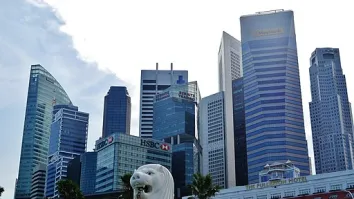
Tokyo and Manila amongst top 5 cities globally with the highest luxury home price growth
Prices in Tokyo and Manila grew by 26.2% and 19.9%, respectively.
The latest edition of Knight Frank’s Prime Global Cities Index confirms that average annual prices rose 1.5% across the 46 markets in the 12-month period to June. The result marked an improvement on the prior quarter, with 57% of cities seeing prices rise over the quarter.
The shift to higher interest rates was the catalyst for the recent downturn in housing markets, and while policy rate tightening cycles are not yet at an end, there is a sense in many markets that the worst of interest rate uncertainty is past, and mortgage rates have begun to edge lower in several major economies.
According to Christine Li, head of research at Knight Frank Asia-Pacific, Asia Pacific prime residential markets are showing stabilisation, with eight markets reporting quarter-on-quarter declines in prices, compared to 10 from a year ago. Near-term price growth has also outpaced those from 12 months ago, signalling stronger momentum ahead.
“Among these, we are anticipating that the worst could be over for New Zealand cities. Seoul also showed a significant rebound, reversing a 4.5% decline from a year ago to rise over 10% over the quarter. With monetary authorities turning resistant to further hikes amid peaking inflation, price declines induced by the rise in interest rates will continue to wane. Further adjustments ahead will largely be driven by property market fundamentals. However, we expect Mainland Chinese cities to remain hamstrung by weak sentiment that would require significant efforts from authorities to shore up," Li said.
Here are some highlights on Asia Pacific cities, according to Knight Frank:
- Tokyo: Followed by the strong growth in Dubai, where the prices in Dubai soared by 225% since reaching a pandemic low in Q3 2020, Tokyo secured the second place with regard to the annual growth, indicating a growth of 26.2%.
- Manila: Manila took the third spot in terms of annual growth, experiencing a growth of 19.9%.
- Singapore: Singapore's real estate market has demonstrated remarkable resilience despite pandemic challenges, achieving a current annual growth rate of 4.2%. The influx of expatriates to Singapore, driven by the thriving financial and professional services sector, has impacted the rental market more than the sales market. In terms of rental growth, according to Knight Frank’s Prime Global Rental Index Q2 2023, annual growth in Singapore stood at 24.5% in Q2 2023, while the super-prime sales (residential sales above US$10 million) experienced a squeeze in sales volumes (according to the latest edition of The Global Super-Prime Intelligence Report). This discrepancy can partly be attributed to recently implemented tax regulations that now impose taxes equivalent to 60% of purchase prices on foreign buyers.
- Australia: Australian markets, initially experiencing robust growth during the pandemic, experienced a sharp downturn in the latter half of 2022. However, with demand outweighing weakened supply in cities like Sydney and Melbourne, growth has turned positive annually in those cities. According to the latest edition of The Global Super-Prime Intelligence Report, Sydney’s super-prime market witnessed strong sales in the last quarter, driven by a rapid surge in demand, partly from Asia but also from a significant portion of domestic buyers.
- Hong Kong: In Hong Kong, prices have dipped by 1.5% over the past year. While higher interest rates have weighed on prices, a recent surge in unsold inventory from newly developed projects has placed further pressure on the market. The city has tweaked its financing regulations to stimulate demand, raising the mortgage loan-to-value ratio to 70% for residential properties valued at HK$15 million or less. While buyers will likely welcome this change, its ability to significantly boost growth remains uncertain.
Note: all data to Q2 2023, except Miami, Los Angeles and San Fransico which are as at Q1 2023
Source: All data comes from Knight Frank’s global network with the exception of Tokyo (Ken Corporation); New York (StreetEasy); Los Angeles, Miami and San Francisco (S&P CoreLogic Case-Shiller); Berlin and Frankfurt (ZIEGERT Research/ ImmobilienScout 24); Stockholm (Svensk Maklarstatistik); Toronto (Real Estate Board of Toronto); Vancouver (Vancouver Real Estate Board); Zurich and Geneva (Wüest Partner).



















 Advertise
Advertise





